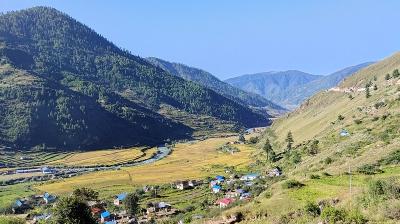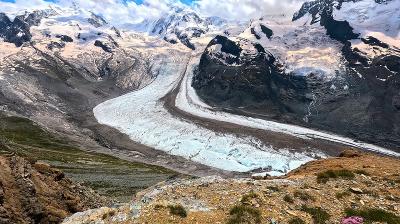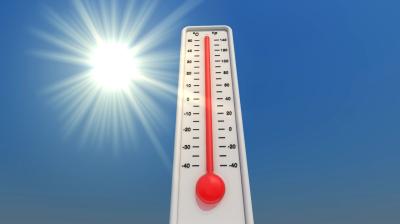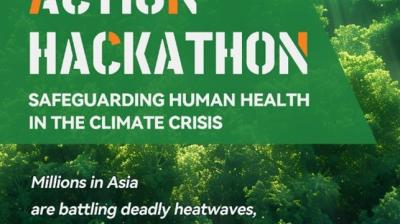IPCC confirms release date and approval session details for next report
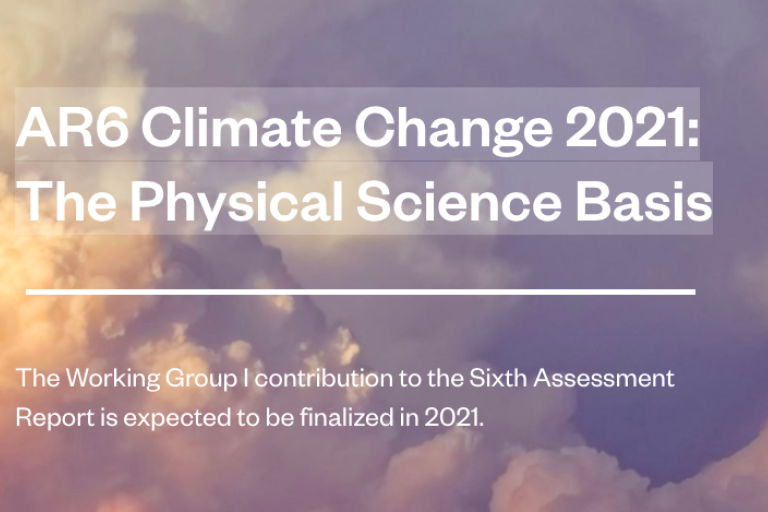
GENEVA, 30 June – The Intergovernmental Panel on Climate Change (IPCC) will release its next report, the Working Group I contribution to the Sixth Assessment Report (AR6), on 9 August 2021 following an approval session held remotely to consider the document from 26 July to 6 August.
It will be the first time that the IPCC has conducted a virtual approval session for one of its reports, although it has held plenary sessions of the Panel and IPCC Bureau remotely to conduct other urgent business on several occasions during the COVID-19 pandemic.
Working Group I assesses the physical science basis of climate change. The report will provide the latest assessment of scientific knowledge about the warming of the planet and projections for future warming, and assess its impacts on the climate system.
“Holding an approval session remotely is unprecedented and we are addressing many practical questions to ensure that all member countries, developing and developed, can participate in adherence to the IPCC Principles and Procedures, and values of openness, transparency, inclusiveness and equitable participation,” said IPCC Secretary Abdalah Mokssit.
Since it became clear earlier this year that containment measures for the pandemic would make it difficult to hold an approval session for the report in person, the IPCC has been exploring options to ensure a timely completion of the report.
Since March the IPCC Secretariat has been consulting with the IPCC’s 195 Member Governments on options for holding the meeting, and the Working Group I Co-Chairs and Bureau are working with the Secretariat to make the appropriate arrangements, considering the guidance and the feedback from the Panel.
Formally the meeting in July and August consists of sessions of both the IPCC and of Working Group I.
The 14th Session of Working Group I will consider the Summary for Policymakers of the report for approval in line-by-line scrutiny by government representatives in dialogue with around 70 report authors and accept the underlying scientific-technical assessment. Then the 54th Session of the IPCC will accept the work of the Working Group, formally accepting the report.
The aim of this process is to ensure that the Summary for Policymakers is accurate, well-balanced and presents the scientific findings of the underlying report clearly.
The approval plenary is the culmination of the rigorous process of drafting and review that IPCC reports undergo. The first-order draft of the Working Group I report received 23,462 review comments from 750 expert reviewers, the second-order draft received 51,387 review comments from governments and 1,279 experts, and the final government distribution of the Summary for Policymakers that ended on 20 June received over 3,000 comments from 47 governments – 23 developing, 23 developed plus the European Union. Over 14,000 scientific papers are referenced in the report.
The IPCC will issue media advisories in the coming weeks explaining how media can follow the opening ceremony of the 54th Session of the Panel, register for access to materials under embargo after approval and acceptance of the report and before the press conference, participate in the press conference, and request interviews with IPCC officers and authors after the press conference.
More information about the Sixth Assessment Report can be found here.
For more information, please contact: IPCC Press Office, Email: ipcc-media wmo [dot] int (ipcc-media[at]wmo[dot]int), Jonathan Lynn, +41 22 730 8066, Werani Zabula, +41 22 730 8120
wmo [dot] int (ipcc-media[at]wmo[dot]int), Jonathan Lynn, +41 22 730 8066, Werani Zabula, +41 22 730 8120
Notes for editors
About the IPCC
The Intergovernmental Panel on Climate Change (IPCC) is the UN body for assessing the science related to climate change. It was established by the United Nations Environment Programme (UNEP) and the World Meteorological Organization (WMO) in 1988 to provide political leaders with periodic scientific assessments concerning climate change, its implications and risks, as well as to put forward adaptation and mitigation strategies. In the same year the UN General Assembly endorsed the action by the WMO and UNEP in jointly establishing the IPCC. It has 195 member states.
Thousands of people from all over the world contribute to the work of the IPCC. For the assessment reports, IPCC scientists volunteer their time to assess the thousands of scientific papers published each year to provide a comprehensive summary of what is known about the drivers of climate change, its impacts and future risks, and how adaptation and mitigation can reduce those risks.
The IPCC has three working groups: Working Group I, dealing with the physical science basis of climate change; Working Group II, dealing with impacts, adaptation and vulnerability; and Working Group III, dealing with the mitigation of climate change. It also has a Task Force on National Greenhouse Gas Inventories that develops methodologies for estimating emissions and removals of greenhouse gases.
IPCC assessments provide governments, at all levels, with scientific information that they can use to develop climate policies. IPCC assessments are a key input into the international negotiations to tackle climate change. IPCC reports are drafted and reviewed in several stages, thus guaranteeing objectivity and transparency.
About the Sixth Assessment Cycle
Comprehensive scientific assessment reports are published every 6 to 7 years; the latest, the Fifth Assessment Report, was completed in 2014 and provided the main scientific input to the Paris Agreement.
At its 41st Session in February 2015, the IPCC decided to produce a Sixth Assessment Report (AR6). At its 42nd Session in October 2015 it elected a new Bureau that would oversee the work on this report and Special Reports to be produced in the assessment cycle. At its 43rd Session in April 2016, it decided to produce three Special Reports, a Methodology Report and AR6.
The IPCC also publishes special reports on more specific issues between assessment reports.
Global Warming of 1.5°C, an IPCC special report on the impacts of global warming of 1.5 degrees Celsius above pre-industrial levels and related global greenhouse gas emission pathways, in the context of strengthening the global response to the threat of climate change, sustainable development, and efforts to eradicate poverty was launched in October 2018.
Climate Change and Land, an IPCC special report on climate change, desertification, land degradation, sustainable land management, food security, and greenhouse gas fluxes in terrestrial ecosystems was launched in August 2019.
The Special Report on the Ocean and Cryosphere in a Changing Climate was released in September 2019.
In May 2019 the IPCC released the 2019 Refinement to the 2006 IPCC Guidelines on National Greenhouse Gas Inventories a,n update to the methodology used by governments to estimate their greenhouse gas emissions and removals.
The contributions of the three IPCC Working Groups to the Sixth Assessment Report are currently under preparation. The concluding Synthesis Report is due in 2022.
For more information please visit www.ipcc.ch.
The website includes outreach materials including videos about the IPCC and video recordings from outreach events conducted as webinars or live-streamed events.
Most videos published by the IPCC can be found on the IPCC YouTube channel.


